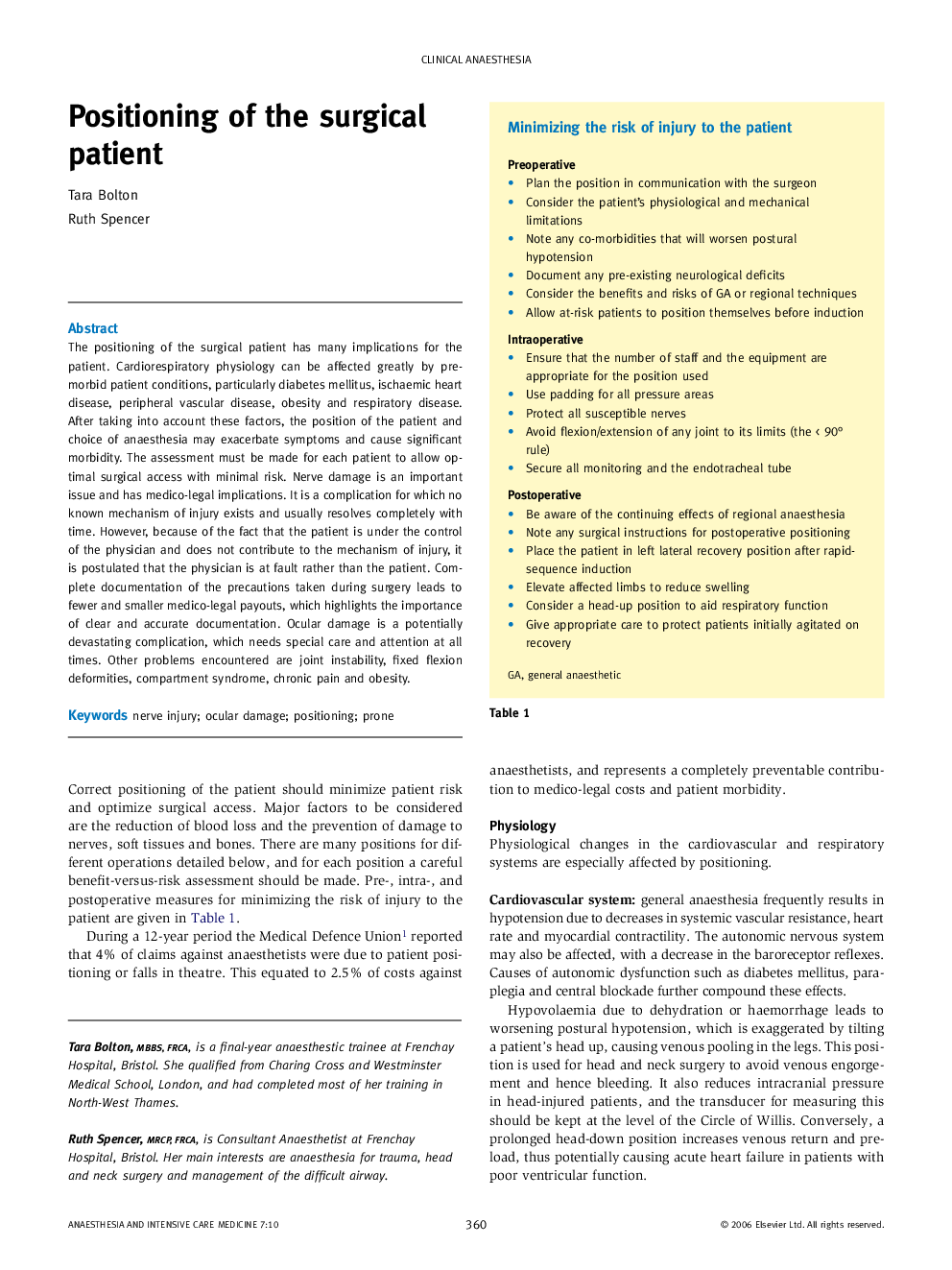| Article ID | Journal | Published Year | Pages | File Type |
|---|---|---|---|---|
| 2743198 | Anaesthesia & Intensive Care Medicine | 2006 | 4 Pages |
The positioning of the surgical patient has many implications for the patient. Cardiorespiratory physiology can be affected greatly by premorbid patient conditions, particularly diabetes mellitus, ischaemic heart disease, peripheral vascular disease, obesity and respiratory disease. After taking into account these factors, the position of the patient and choice of anaesthesia may exacerbate symptoms and cause significant morbidity. The assessment must be made for each patient to allow optimal surgical access with minimal risk. Nerve damage is an important issue and has medico-legal implications. It is a complication for which no known mechanism of injury exists and usually resolves completely with time. However, because of the fact that the patient is under the control of the physician and does not contribute to the mechanism of injury, it is postulated that the physician is at fault rather than the patient. Complete documentation of the precautions taken during surgery leads to fewer and smaller medico-legal payouts, which highlights the importance of clear and accurate documentation. Ocular damage is a potentially devastating complication, which needs special care and attention at all times. Other problems encountered are joint instability, fixed flexion deformities, compartment syndrome, chronic pain and obesity.
